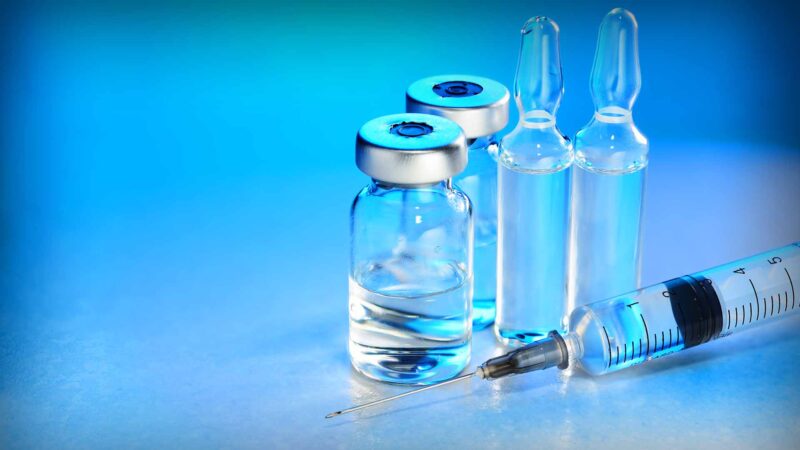Pharmacists and pharmacy staff faced extraordinary pressure during the COVID pandemic, with some losing their lives, highlighting the importance of ensuring workplace safety and mental health support.
The expansion of scope for pharmacists during COVID has highlighted the potential for community pharmacists to deliver further professional services, adding value to the pharmacy space.
With this in mind, as well as pharmacy development goals aligned with the UN’s Sustainable Development Goals, there has now been change in the global federation representing 4 million pharmacists across over 100 countries, with the election and appointment of an Australian pharmacist as President.
In late 2023, Paul Sinclair, was elected as the President of the International Pharmaceutical Federation (FIP), the first Australian to hold the position.
Mr Sinclair, a community pharmacist and former community pharmacy proprietor, has served on FIP for a number of years, including as president of its Community Pharmacy Section (2014–18) and chair of FIP’s Board of Pharmaceutical Practice since 2018.
He has also held several officer positions at the Pharmacy Council of New South Wales, the Australian Association of Consultant Pharmacists and the Pharmacy Guild, as well as board positions in not-for-profit organisations such as Asthma Australia.
He has had extensive experience in local government, serving as both a councillor and mayor of Campbelltown City Council. In 2019, Mr Sinclair was awarded a Member of the Order of Australia for his services to pharmacy, the community and local government.
Paul Sinclair’s extensive experience in the pharmaceutical industry, including his roles as President of the International Pharmaceutical Federation and chair of the Australian Association of Consultant Pharmacists, highlights his deep knowledge and expertise in the field.
His appointment will be ratified at the upcoming FIP Congress in Brisbane later this month. In accordance with the FIP Statutes, president-elect Paul Sinclair has commenced performing the duties of president following the unexpected passing of his predecessor Dominique Jordan in Switzerland.
Paul’s progression through the ranks of FIP demonstrates the impact and influence he’s had in representing the pharmacy profession on a global scale. In this Australian Health Journal interview, Paul talks about the 4 themes in the upcoming FIP Congress in Brisbane this month. He also talks about the challenges facing pharmacy with remuneration, professional service delivery and the workforce coming out of the COVID era.
About the International Pharmaceutical Federation (FIP)
The International Pharmaceutical Federation (FIP) is the global body for pharmacy, pharmaceutical sciences and pharmaceutical education. Through 152 national organisations, academic institutional members and individual members, FIP represents over four million pharmacists, pharmaceutical scientists and pharmaceutical educators around the world.
Founded in 1912, FIP is a non-governmental organisation with its head office in the Netherlands. Through partnerships and extensive pharmacy and pharmaceutical sciences network, FIP works to support the development of the pharmacy profession, through practice and emerging scientific innovations, and through developing the pharmacy workforce in order to meet the world’s health care needs and expectations.
You Might also like
-
Impact of genetic pathologist role across medicine
Dr Marina Berbic is a genetic pathologist and the Deputy Director of Genetics at Douglass Hanly Moir Pathology – a laboratory based in Sydney and part of Sonic Healthcare. The genetics department at Douglass Hanly Moir offers a wider array of genetic tests across many domains, and the medical leadership model ensures the highest possible standard of care and commitment to patient safety.
-
Rural allied health mentorship program creates opportunities for students and practice
Melanie Roll, a director and physiotherapist at Gen Health Hamilton, is dedicated to nurturing the next generation of allied health professionals. Gen Health’s support begins with a work experience program for local secondary school students, where they can observe a variety of health services and participate in an annual careers night to explore allied health career pathways.
Upon moving to tertiary education, students are offered placements through a five-week program designed to transition them from observation to supervised practice and ultimately to seeing their own patients. In their final study year, they can apply for the mentorship program, which aids the transition into private practice.
-
Startup Advances Biosensing
Melbourne based Nutromics is looking to solve some of the biggest healthcare challenges, by delivering on a mission to revolutionise precision medicine with Continuous Molecular Monitoring (CMM). Nutromics is developing biosensor technology integrated into a small and unobtrusive wearable smart patch.The software solution aims to be flexible and designed to connect with mobile and web solutions for integration with consumer health software and hospital platforms.



